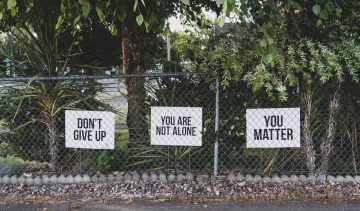If you feel like your mental health is deteriorating, or that you’re having difficulties with your mental health, talking to a doctor or therapist is an important first step toward recovery. After seeing a doctor or therapist you may receive a diagnosis. A diagnosis may be confusing at first. It could bring up a whole range of emotions. You may be wondering what it all means, how it is going to affect you, and what you can do next. In this article, I hope to clear up what a diagnosis is, why we have them, and what you can do.
Emotions
After receiving a diagnosis it is very normal to experience a wide range of emotions. You may experience relief, anger, or confusion, or maybe even all of these at the same time. It can be a positive experience, allowing you to put a name to your issues and discuss your options with a professional. However, you can also experience some negative emotions. Below are some examples of emotions and thoughts that are commonly experienced:
- relief – This explains the way I have been feeling.
- anger – Why me?
- hope – There are treatments that can help. I can get through this.
- shame – I am flawed. This isn’t me.
- confusion – What does this all mean? What now?
- anxiety – How are others going to react? How is this going to affect me?
Receiving a diagnosis can be a difficult experience. It may take some time for you to process and understand all the information. But hopefully, it will eventually lead to a greater self-understanding and insight. Nonetheless, it is important to know that you are far from alone! In fact, around 1 in 5 people will experience a mental health issue in their lifetime.
What is a diagnosis?
In contrast to medical conditions such as cancer, diabetes or chlamydia, there is often no single test that can give you a mental health diagnosis. A diagnosis is often given by a mental health professional who will take a number of factors into account. This may include (but not always) a physical or medical examination, questionnaires or surveys, your history as well as an interview with you and sometimes someone close to you. The interview will involve questions about your mood, thoughts, and behaviour. They will then use the DSM-5 to see if you meet the criteria for a diagnosis.
A diagnosis can change; more information may become available over time, you may meet another professional who uncovers new information or does a more in-depth assessment. Furthermore, the guidelines for making a diagnosis may be updated, meaning that the criteria are now different or has a different name.
Multiple diagnoses
It is also possible to receive more than one diagnosis at once, it is very common to experience more than one mental illness at a time. The U.S. The National Comorbidity Survey found that 51% of people who were diagnosed with depression also had at least one anxiety disorder. Why that happens is not completely known, but it could be that disorders have the same underlying cause, risk factors or that one disorder may contribute to another.
Nevertheless, it is important to recognise that you are not defined by your diagnosis, you are just a person who is struggling with mental health issues with a set of symptoms that can be categorised into a label.
Why do we get a diagnosis?
Not only is a diagnosis a good starting place to learn about your symptoms and complaints. A diagnosis is often a very useful tool for treatment. It can inform you and your professional on the direction of your treatment as well as what steps you can take to minimise your symptoms. It can inform them of any risks as well as effective interventions.
Furthermore, a diagnosis often is required for your health insurance. It indicates that you have a condition that requires help and can lead to financial support, as well as mental health care resources that you previously did not have access to. Examples could be regular sessions with a psychologist, taking time off work, receiving extra financial benefits and medication that might not have been previously available.
What can you do?
- Learn about your diagnosis – Getting a diagnosis can lead to a wealth of resources and knowledge on your symptoms and complaints. Talk to your professional and people with knowledge on the topic as well as read trustworthy material. Ask your professional any questions you might have or for more resources. The more informed you are, the better you will be able to work together with your professional and make decisions that are right for you.
- Find support – Talk to family and friends that you can trust and are close to. Not only will they be able to provide you with emotional support, but your friends and family can also make effective changes to help you in your recovery process or support you with any setbacks. Your environment can have a big impact on your mental health.
In addition, there are also often many local or online support groups with people who have also received the same diagnosis and are going or have been through the same experience. Talking to these people can help you find people to connect with and reduce feelings of loneliness.
A diagnosis does not determine who you are
Receiving a diagnosis can be both a positive and negative experience. Keep in mind that a diagnosis does not determine who you are. You may not even necessarily identify with all the criteria. The diagnosis is a tool for your professional to help you get the right treatment. It is the start of an investigation into how to improve your well-being! Be proud of taking the first step to getting treatment!
Have you got questions about your diagnosis or treatment? Discuss these with your professional! Are you not yet in treatment but would like to explore your options? You can follow a treatment via NiceDay at various organizations, click here for more information.











